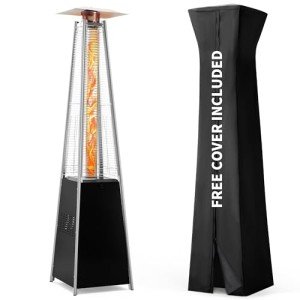The Comprehensive Guide to Fireplaces and Stoves
Fireplaces and stoves have actually been essential to human civilization for centuries, functioning as a source of heat, light, and convenience. These devices come in numerous types and have evolved for many years, accommodating varied choices and technological improvements. Traditional Fireplaces USA supplies a useful summary of fireplaces and stoves, highlighting their types, advantages, maintenance ideas, and setup factors to consider.
Kinds of Fireplaces
The world of fireplaces is abundant and varied. Here are the most common types:
Wood-Burning Fireplaces:
- Traditional and lovely.
- Requires seasoned wood and regular maintenance.
- Produces a pleasant scent and crackling sound.
Gas Fireplaces:
- Offer convenience and ease of use.
- Available in vented and vent-free options.
- More efficient and cleaner than wood-burning options.
Electric Fireplaces:
- Provide atmosphere without the requirement for a chimney.
- Easy to use with push-button control alternatives.
- Can be utilized as an extra heat source.
Pellet Stoves:
- Use compressed wood pellets as fuel.
- Extremely efficient and eco-friendly.
- Often equipped with thermostats for temperature control.
Ethanol Fireplaces:
- Utilize bioethanol fuel, making them portable.
- Do not need venting, which enables for flexible placement.
- Produce a sensible flame with minimal smoke.
Outdoor Fireplaces:
- Designed for outdoor settings; can be wood or gas-burning.
- Great for amusing and enhancing backyard aesthetics.
- Frequently constructed from stone, brick, or metal.
Benefits of Fireplaces and Stoves
Including a fireplace or stove into a home offers various advantages:
- Aesthetic Appeal: Fireplaces serve as striking focal points in any room, adding heat and character to home decor.
- Increased Property Value: Homes with practical fireplaces tend to have higher resale values.
- Energy Efficiency: Modern fireplaces and stoves are developed to be more energy-efficient, which can result in minimized heating expenses.
- Backup Heating Source: In case of power failures, wood-burning and gas fireplaces can serve as essential heating sources.
- Versatile Heating Solutions: Different types of fireplaces cater to various heating requirements and lifestyles, from relaxing ambiance to efficient heating.
| Kind of Fireplace/Stove | Fuel Source | Efficiency Rating | Maintenance Level |
|---|---|---|---|
| Wood-Burning | Wood | Moderate | High |
| Gas | Natural gas/LP | High | Low |
| Electric | Electrical energy | High | Very Low |
| Pellet | Wood pellets | High | Moderate |
| Ethanol | Bioethanol | Moderate | Low |
| Outdoor | Wood or gas | Moderate | Varies |
Maintenance Tips
Correct maintenance extends the life of fireplaces and stoves, making sure security and efficiency. Here are some vital suggestions:
Regular Cleaning:
- Wood-burning fireplaces must be cleaned up after a complete season of use to remove soot and creosote.
- Gas fireplaces require regular assessment of the burner and vents.
Regular Inspections:
- Have chimney sweeper perform annual assessments to determine obstructions or structural damage.
- Examine the seals and gaskets on gas units to avoid leaks.
Fire Safety:
- Install smoke and carbon monoxide gas detectors in homes with fireplaces or stoves.
- Keep a fire extinguisher near the fireplace or range for emergencies.
Use Quality Fuel:
- For wood-burning systems, always utilize experienced wood; prevent dealt with or painted wood.
- When utilizing pellets, guarantee they are kept effectively to prevent moisture absorption.
Manage Airflow:
- Keep vents and ducts clear to promote reliable ventilation and airflow.
- Think about utilizing glass doors or screens to decrease particles and ash in the living space.
Setup Considerations
Installing a fireplace or stove requires mindful consideration of several elements:
Location:
- Choose an area that permits correct clearance and ventilation.
- Consider the design of your home and the benefit of natural heat circulation.
Structure Codes and Permits:
- Check local guidelines regarding setups and essential licenses.
- Engage a professional to make sure compliance with safety standards.
Fuel Type:
- Evaluate your fuel choices based on availability, cost, and environmental impact.
- If going with gas, make sure existing gas lines can accommodate the brand-new home appliance.
Ventilation:
- Proper venting is crucial for safety and performance, specifically for gas and wood-burning systems.
- Speak with an expert to figure out the very best venting service.
Aesthetic Consideration:
- Select a design that complements your home's interior.
- Think about mantels, surround products, and colors that match your decoration.
Frequently asked questions
What is the best type of fireplace for heating?
Gas fireplaces are normally more efficient for heating, while wood-burning fireplaces supply more ambient heat.
How typically should I clean my fireplace?
Wood-burning fireplaces need to be cleaned up a minimum of when a year, while gas fireplaces require less frequent attention depending upon use.
Can I set up a fireplace myself?
While some homeowners may try DIY setup, it is suggested to employ a professional to make sure safety and compliance with structure codes.
Are electric fireplaces efficient?
Yes, electric fireplaces are extremely efficient and can act as reliable additional heating sources, especially in smaller areas.
What is the lifespan of a fireplace?
The lifespan of a fireplace differs depending upon the material, type, and upkeep; however, a well-kept wood-burning fireplace can last over 30 years.
Fireplaces and stoves remain classic functions in homes, using heat and ambiance. Comprehending the various types, advantages, and upkeep requirements can help property owners make informed decisions about installation and care. With mindful preparation and regular maintenance, these devices can boost both the convenience and value of a home for years to come.

